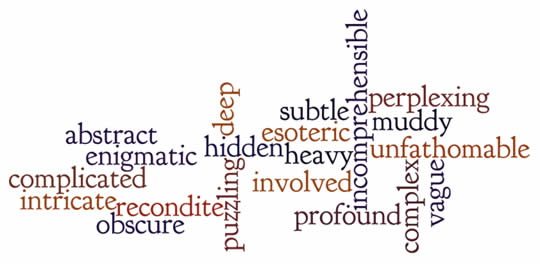The Dark Side of Adjectives

Want your content to go viral, or at least get shared? Then don’t overdo the adjectives. That’s one of the interesting findings Dan Zarrella shares in his book, Zarrella’s Hierarchy of Contagiousness.
Zarrella analyzed a group of stories and posts from a variety of sources – news outlets, blogs, etc. – and compared how often they.were shared via social sites. He found that the complexity of language in the content was inversely correlated with the number of shares. The simpler the writing style, the more likely it was to be passed on.
Zarrella then dug a little deeper, and found that the least shared content had the highest use of adverbs and adjectives. This isn’t totally surprising. Experts have told us for decades that nouns and verbs move the reader forward, but modifiers slow the reader down.
Adjectives do have their place – judicious use of vivid modifiers can make products more appealing. (See Adjective Power.) But more often than not, these modifiers serve little purpose other than to pad content length and raise the complexity level of the copy.
The Neuromarketing takeaway is simple. Writing at a doctorate thesis level may make the writer feel smart, but it will kill social sharing. Unnecessary modifiers are stumbling blocks in the path of reader engagement. So, don’t use adjectives and adverbs that aren’t essential for clarity.
Simple copy is shareable copy!
